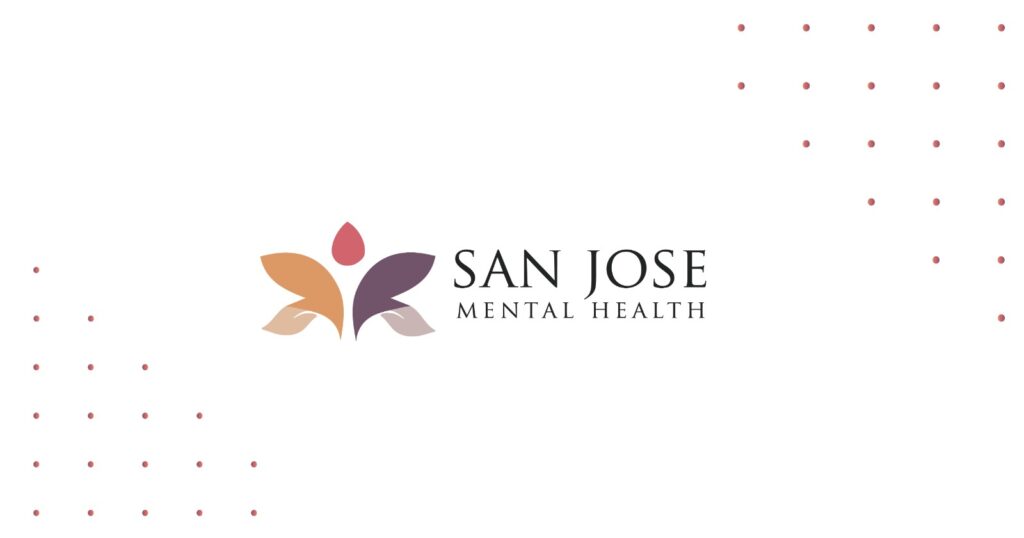Aging is a journey filled with unique experiences and challenges. As we age, our bodies and minds undergo significant changes that can impact our mental health, leading to various mental health disorders. Understanding these changes and how they affect mental well-being is crucial for maintaining a high quality of life. In this blog post, we’ll delve into the effects of aging on mental health, explore common mental health conditions faced by older adults, and provide practical strategies for support and management.
Essential Takeaways
- Aging Impacts Mental Health in Various Ways: Biological changes such as decreased neuroplasticity, vascular risk factors, and white matter disease, combined with psychological and social factors like life transitions and social isolation, can significantly affect mental health in older adults. Understanding these impacts is crucial for effective preventive health care management and support.
- Common Conditions and Their Management: Older adults commonly face conditions such as depression, anxiety disorders, cognitive decline, and sleep disorders. Each condition requires specific management strategies, including medication, therapy, lifestyle adjustments, and psychosocial interventions. Additionally, the prevalence of substance abuse among older adults is rising, making substance use disorder management critical. Early detection and initiation of treatment are essential to avoid resistance to treatment.
- Support Strategies Are Key: Implementing supportive strategies is essential for managing mental health in aging. This includes engaging in physical activity, maintaining a healthy diet, participating in social activities, and creating a supportive living environment. Family involvement and professional help from mental health care providers are also vital for comprehensive care.
San Jose Mental Health
Understanding How Aging Affects Mental Health
Biological Changes and Their Impact
As we age, our brain undergoes a series of neurobiological changes. One of the most noticeable changes is a decline in neuroplasticity. Neuroplasticity refers to the brain’s ability to adapt and reorganize itself by forming new neural connections. With age, this ability diminishes, which can affect learning, memory, and cognitive flexibility, increasing the risk for neurocognitive disorders like dementia. Degenerative brain diseases, such as Alzheimer’s disease and Parkinson’s disease, further complicate mental health in older adults, increasing their risk for dementia.
Neurotransmitter Changes: Aging also brings about changes in neurotransmitters, the chemicals in the brain that transmit signals. For example, levels of serotonin and dopamine, which play roles in mood regulation and cognitive function, tend to decrease. This reduction can contribute to symptoms of major depression and anxiety, potentially leading to chronic depression if left untreated. The development of biomarkers for these neurotransmitter changes is an ongoing area of research to better predict and treat these mental health conditions.
Hormonal Changes: Hormonal shifts are another factor affecting mental health. For example, older adults often experience reduced levels of estrogen and testosterone. These hormonal changes can influence mood, cognitive function, and overall mental well-being, sometimes exacerbating existing psychiatric disorders. Depression risk increases during late life due to these shifts, and understanding their disease pathology is essential for effective management.
Psychological and Social Factors
Life Transitions: Aging involves numerous life transitions, including retirement, the loss of loved ones, and changes in social roles. These transitions can be emotionally challenging and may lead to feelings of sadness or loss, contributing to depressive symptoms. Adjusting to new roles and circumstances can impact mental health and require time and support, especially when combined with social services aimed at supporting aging populations.
Social Isolation: Social interactions are crucial for mental health. However, older adults may face social isolation due to mobility issues, the death of friends and family, or living alone. Loneliness and social isolation are linked to a higher risk of mental health issues such as depression and anxiety. Building and maintaining social connections can help mitigate these risks. Risk in women is particularly high, as they are more prone to social isolation and related mental health issues. Community health workers can play a critical role in addressing social isolation by facilitating connections and offering support.

Common Mental Health Conditions in Older Adults
Depression
Symptoms and Diagnosis: Depression in older adults may manifest differently than in younger people. Common symptoms include persistent sadness, loss of interest in previously enjoyed activities, changes in appetite and sleep patterns, and difficulty concentrating. Diagnosis can be challenging because symptoms may overlap with those of other health conditions or be mistaken for normal aging processes, which can result in a significant treatment gap.
Risk Factors: Several factors can increase the depression risk in older adults. Chronic illnesses, such as heart disease or chronic pain, can contribute to feelings of hopelessness. The death of a spouse or close friends, along with social isolation, can also play a significant role, potentially leading to suicidal ideation or even suicide attempts if not properly addressed. Suicide rates among older adults are a growing concern, highlighting the need for proactive mental health care.
Anxiety Disorders
Types of Anxiety Disorders: Older adults can experience various anxiety disorders, including generalized anxiety disorder (GAD), panic disorder, and social anxiety disorder. GAD involves persistent and excessive worry about various aspects of life, while panic disorder is characterized by sudden and intense episodes of fear. Social anxiety disorder may involve extreme shyness or fear of social situations, which can limit social connections and overall quality of life. Anxiety in older adults may also be linked to behavioral health care issues, requiring a comprehensive approach to treatment.
Management and Treatment: Treating anxiety in older adults often involves a combination of therapy and medication. Cognitive-behavioral therapy (CBT) is effective in helping individuals manage anxiety by changing negative thought patterns. Medications such as selective serotonin reuptake inhibitors (SSRIs) may also be prescribed. Additionally, relaxation techniques and mindfulness practices can help manage anxiety symptoms. Addressing substance use conditions is also crucial, as it can exacerbate anxiety symptoms.
San Jose Mental Health
Cognitive Decline and Dementia
Alzheimer’s Disease: Alzheimer’s disease is the most common form of dementia, characterized by progressive memory loss, confusion, and cognitive decline. It typically starts with mild symptoms and gradually worsens over time. Alzheimer’s disease affects not only memory but also reasoning, language, and the ability to perform everyday tasks, increasing the risk for dementia.
Other Types of Dementia: Besides Alzheimer’s, other types of dementia include vascular dementia, which results from blood flow problems in the brain, and Lewy body dementia, which involves abnormal protein deposits affecting brain function. Each type of dementia presents unique symptoms and progression patterns, making early prevention strategies and diagnosis crucial.
Sleep Disorders
Common Issues: Sleep disorders are prevalent among older adults, with issues such as insomnia, sleep apnea, and restless legs syndrome being common. Insomnia involves difficulty falling or staying asleep, while sleep apnea is characterized by interrupted breathing during sleep. Restless legs syndrome causes uncomfortable sensations in the legs, leading to disrupted sleep, which can worsen neuropsychiatric symptoms.
Impact on Mental Health: Poor sleep quality can exacerbate mental health issues, including depression and cognitive decline. Lack of restful sleep affects mood, memory, and overall cognitive function, making it essential to address sleep problems as part of managing mental health. Preventive health care management should include strategies for improving sleep to reduce treatment resistance.
Support Strategies for Managing Mental Health in Aging
Medical and Therapeutic Interventions
Medication Management: Medications can play a crucial role in managing mental health conditions in older adults. Antidepressant medication, anti-anxiety medications, and medications for cognitive decline can help alleviate symptoms. However, careful medication management is essential, as older adults may have different reactions to drugs and potential interactions with other medications. The increased need for medication in this population often leads to a heavier medication load, requiring careful monitoring by health care professionals. Additionally, addressing poorer health practices and ensuring access to quality health care are vital for optimizing treatment outcomes.
Therapy Options: Therapy can be highly effective for addressing mental health issues. Cognitive-behavioral therapy (CBT) is a common approach for treating depression and anxiety by helping individuals identify and change negative thought patterns. Psychotherapy can also provide emotional support and coping strategies, while psychosocial interventions can help improve quality of life by addressing the social aspects of mental health.
Lifestyle Adjustments
Physical Activity: Regular exercise is beneficial for mental health and cognitive function. Physical activity can improve mood, reduce symptoms of depression and anxiety, and enhance cognitive function. Activities such as walking, swimming, or participating in group exercise classes can be particularly beneficial, contributing to overall healthful behavior.

Healthy Diet: Nutrition plays a vital role in mental well-being. A balanced diet rich in fruits, vegetables, whole grains, and lean proteins can support brain health and reduce the risk of mental health conditions. Healthy eating habits are essential for maintaining physical and mental health as we age.
Social Engagement: Maintaining an active social life is crucial for mental well-being. Encouraging older adults to engage in social activities, join clubs or groups, and maintain relationships with friends and family can help reduce feelings of isolation and improve overall mental health.
Supportive Living Environment: Creating a supportive and safe living environment is vital for the mental well-being of older adults. This may involve ensuring accessibility, providing necessary medical equipment, and making the home environment comfortable and conducive to positive mental health.
Conclusion: Embracing the Aging Journey with Resilience
Understanding the connection between aging and mental health is vital for ensuring older adults enjoy a high quality of life. By recognizing the impact of biological, psychological, and social factors on mental health, we can better support older adults in managing mental health conditions and maintaining a fulfilling life. With the right interventions, lifestyle adjustments, and support systems, aging can be a time of growth, connection, and well-being.
San Jose Mental Health
FAQs
1. What are the most common mental health conditions in older adults?
The most common mental health conditions in older adults include depression, anxiety disorders, cognitive decline (including Alzheimer’s disease and other forms of dementia), and sleep disorders. These conditions can significantly impact quality of life and require appropriate diagnosis and management.
2. How can I distinguish between normal aging and mental health issues?
Normal aging involves gradual changes in cognitive and emotional functioning, while mental health issues are characterized by more severe or disruptive symptoms. For instance, mild forgetfulness is common with aging, but significant memory loss affecting daily life could be a sign of dementia. Consulting with a healthcare professional can help differentiate between normal aging and mental health concerns.
3. What are effective treatments for depression in older adults?
Effective treatments for depression in older adults may include a combination of medication (such as antidepressants), psychotherapy (including cognitive-behavioral therapy), and lifestyle modifications. Engaging in regular physical activity, maintaining a healthy diet, and building social connections are also beneficial.

4. How can family members support an elderly loved one dealing with anxiety?
Family members can support an elderly loved one dealing with anxiety by providing emotional support, encouraging participation in therapy, helping them adhere to treatment plans, and promoting relaxation techniques. Creating a supportive environment and fostering open communication are also crucial.
5. What lifestyle changes can help improve mental health in older adults?
Lifestyle changes that can help improve mental health in older adults include regular physical activity, a balanced diet rich in nutrients, engaging in social activities, and maintaining a structured daily routine. Additionally, ensuring adequate sleep and managing stress effectively contribute to overall well-being.












